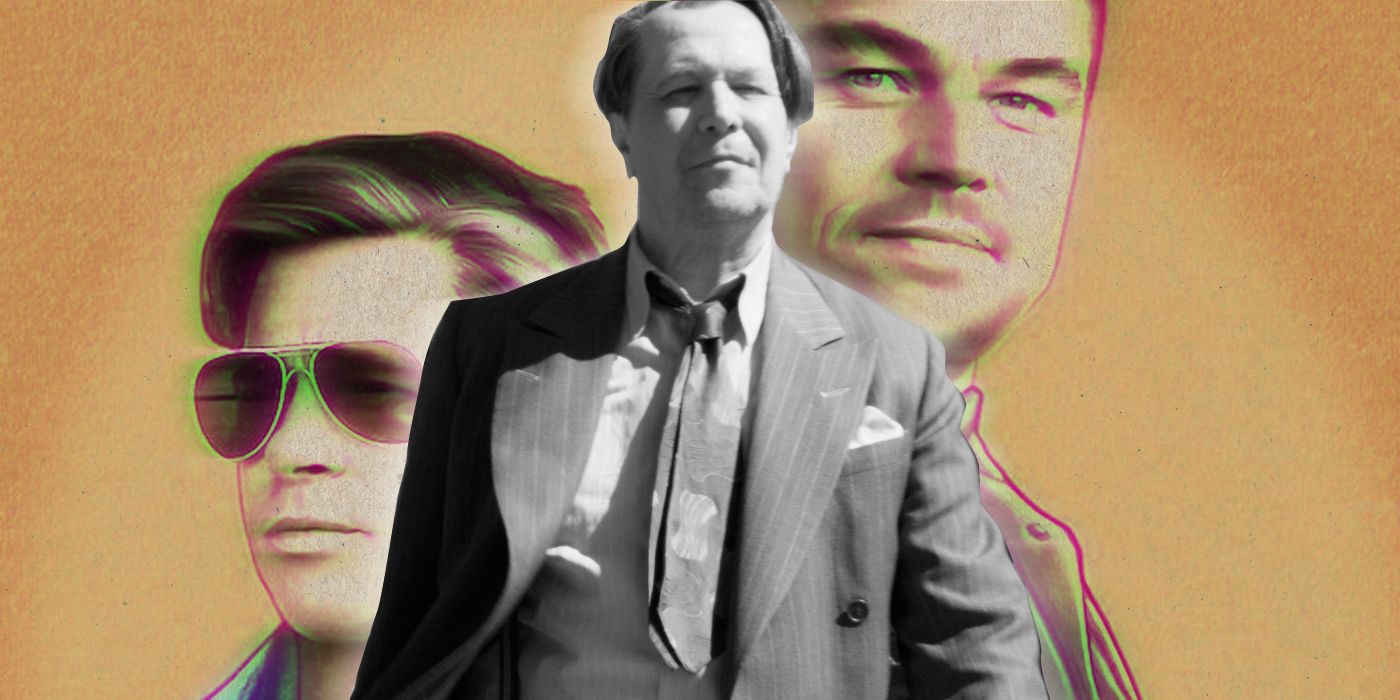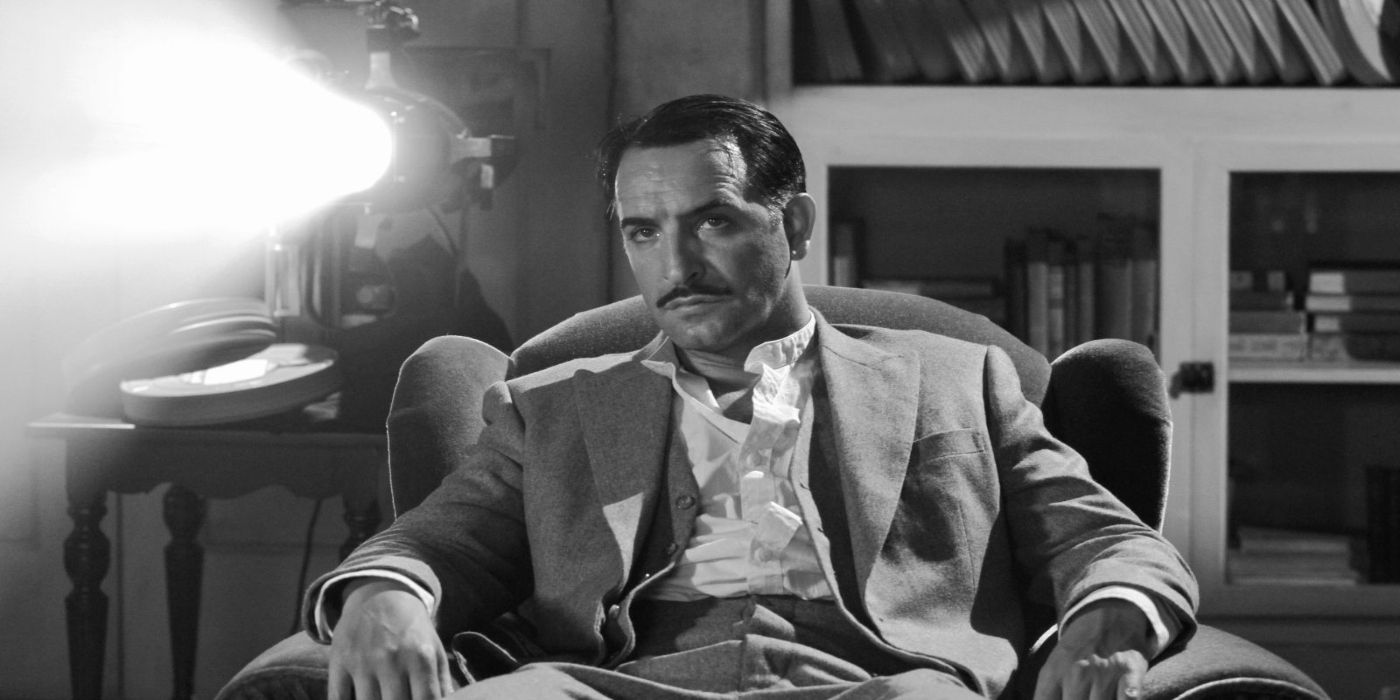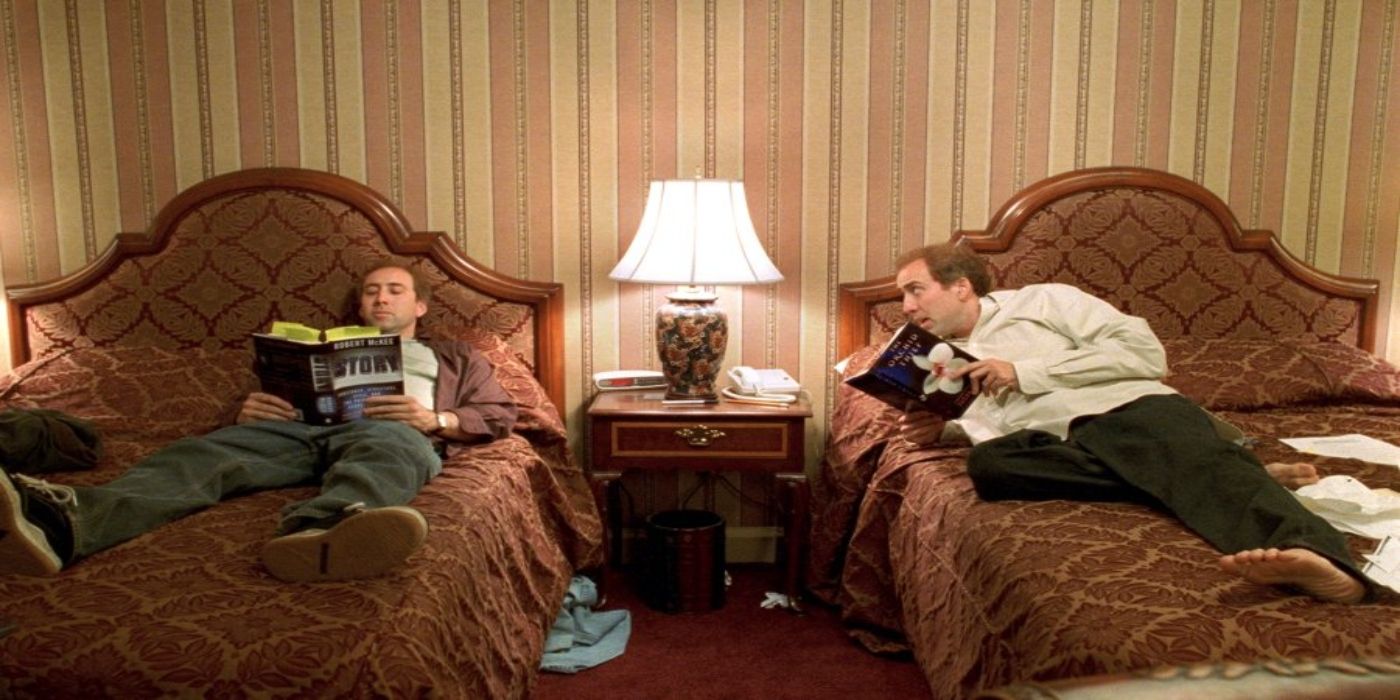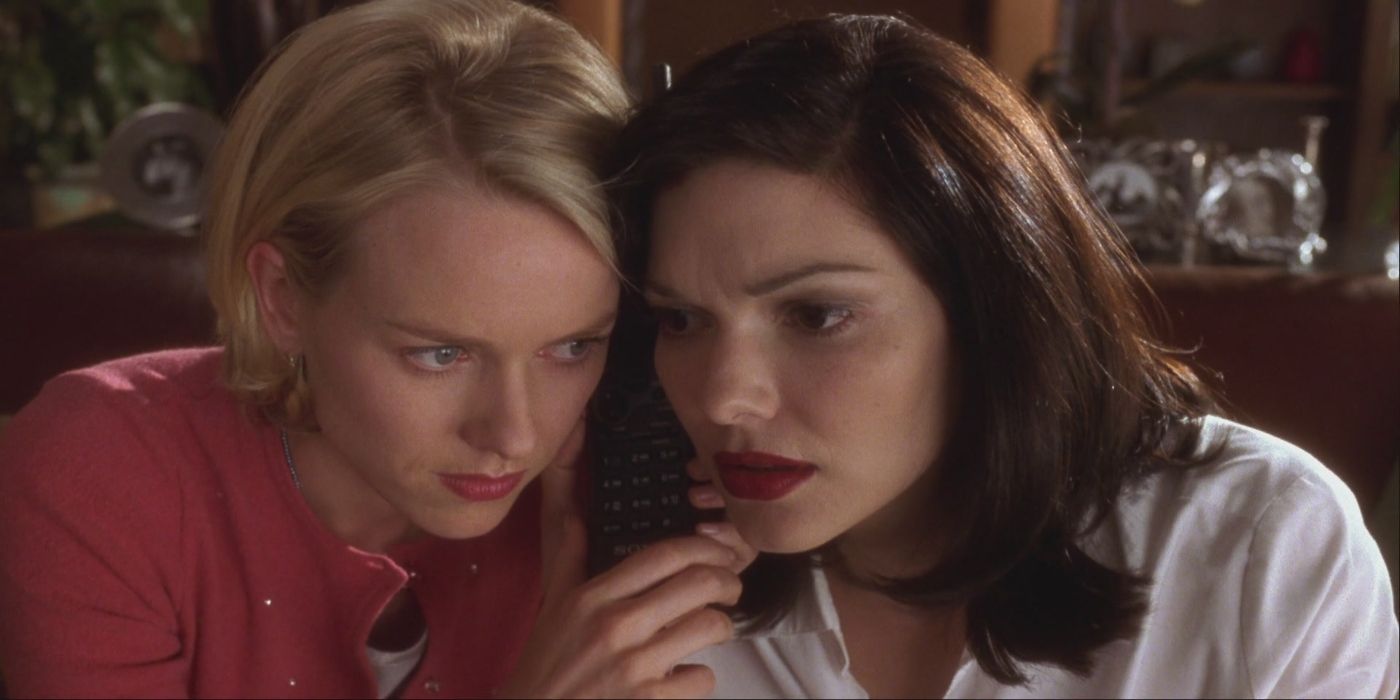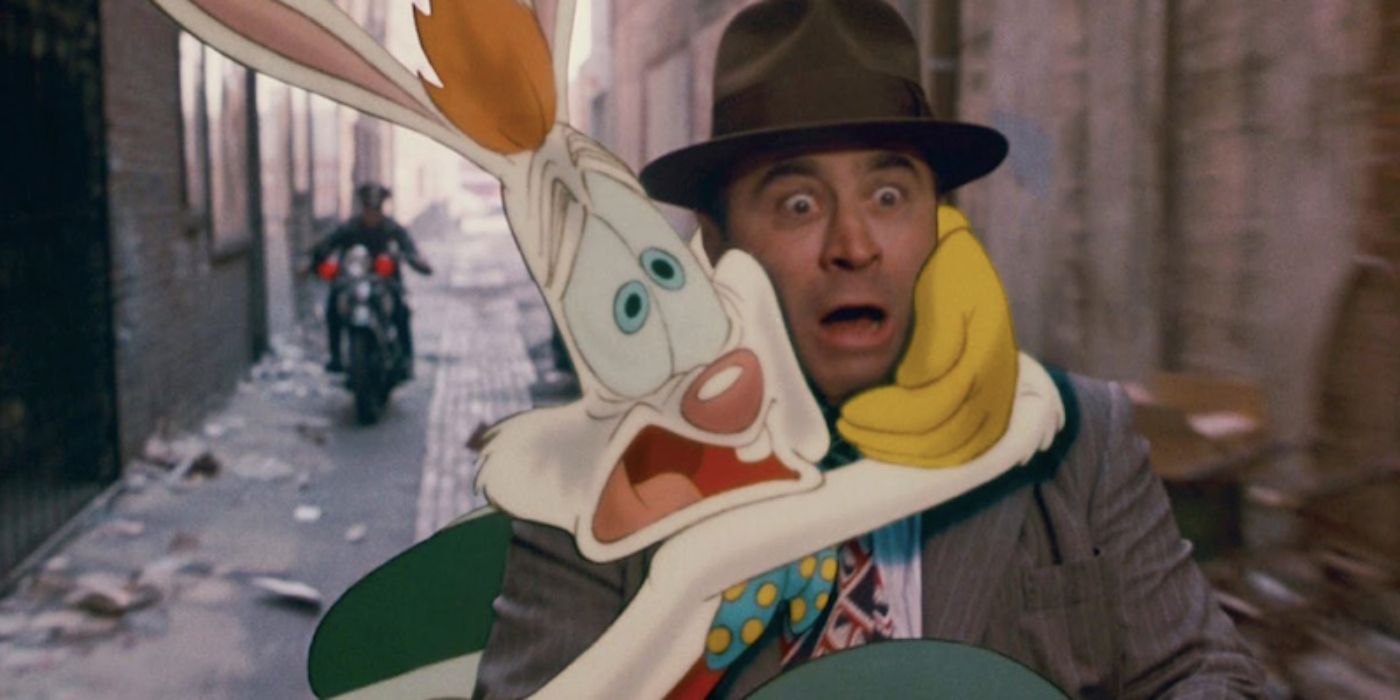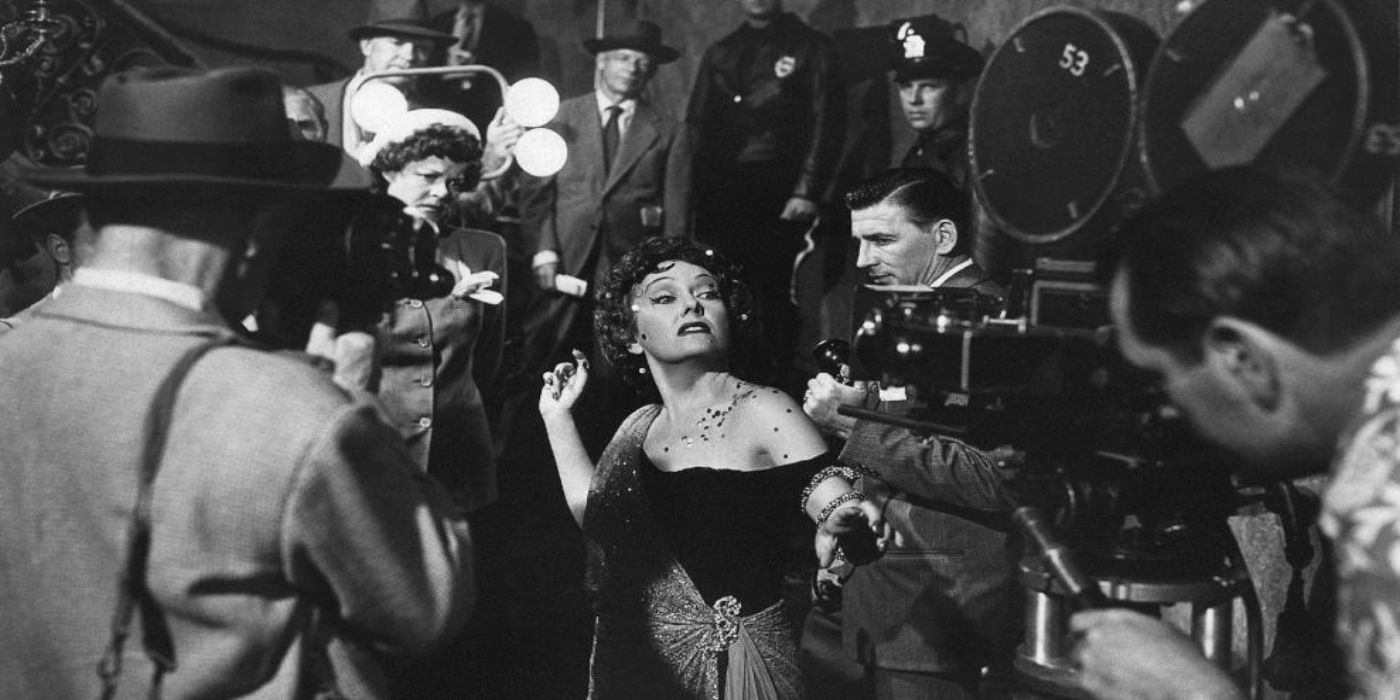Recently released on Netflix, David Fincher's Mank is being hailed by some as "a tour du force," especially in regards to how it depicts old Hollywood. The film explores the life of Herman J. Mankiewicz, the original screenwriter of Orson Welles's Citizen Kane. Mank may be a very important depiction of Hollywood's past, but it's not the only film that captures a particular moment in the film industry. The following movies are some of the best films about Hollywood, and they're perfect follow ups to Mank.
Once Upon a Time in Hollywood
Acclaimed auteur Quentin Tarantino successfully transformed 2010s Los Angeles into an exact replica of the same city during the summer of 1969 for Once Upon a Time in Hollywood. Starring talents like Brad Pitt and Leonardo DiCaprio, this academy award-nominated film depicts a day in the life of an aging movie star and his long-time friend and stunt-man. It also stars Margot Robbie as real-life film icon Sharon Tate.
While the film's last 20 minutes are undeniably Tarantino, the rest of the movie differs greatly from his previous works. Once Upon a Time in Hollywood is really a hangout movie that oddly has more in common with Fear and Loathing in Las Vegas than Pulp Fiction. The director does a brilliant job combining his signature chaotic tone and stylized dialogue with an altered take on the summer of 1969.
The Artist
The Artist depicts a time in the industry that was notably tumultuous. The film follows the friendship between two actors -- one an established silent star and the other a newcomer to the scene -- between the years of 1927 and 1932, when all movies started to transition from silent films to talkies.
George, the silent film star, is afraid of what's to come as movies begin to abandon the silent style. Meanwhile, Peppy, the rising star, fits in with the world of talkies. The Artist does a brilliant job of capturing a certain period in time, while still telling a thoroughly engaging story. Despite being shot in black and white and containing nearly no spoken dialogue, The Artist was a huge success with audiences and critics alike.
Maps To the Stars
David Cronenberg showcases the dark side of Hollywood with his sinister satire. Featuring a star-studded ensemble including Julianne Moore, John Cusack, Mia Wasikowska and Robert Pattinson, Maps To the Stars dives headfirst into the secret lives of several fictional A-list celebrities. The film humorously depicts how vapid and self-absorbed these characters are, before descending into full-blown madness and bloodshed.
Cronenberg strips away the glitz and glamor of Hollywood and replaces it with a mix of surrealist horror and deep depravity. One of the most impressive aspects of this film are the stellar performances. Wasikowska and Moore do some of their best work here as a scorned sociopath and a has-been starlet. The film may not be terribly known in pop culture, but it was recognized by the Cannes Film Festival, premiering in competition for the Palme d'Or in 2014.
Adaptation
Charlie Kaufman's art succeeds in completely destroying the audience's expectations. Kaufman does just this with a movie about movies, and it is unlike anything else out there. Written by Kaufman and directed by Spike Jonze, Adaptation is Kaufman's reaction to actually adapting a book to film.
The film stars Nicolas Cage in a dual role as a version of Kaufman and his fictional twin brother, Donald. Kaufman deals with writer's block while writing a screen adaptation of a biography, and he's feeling inferior to his brother. A parallel storyline also depicts the events of the novel Kaufman is adapting, starring Meryl Streep as the author. Adaptation is a meta examination of the life of a screenwriter that is equally honest and perplexing.
Mulholland Drive
David Lynch is often inspired by old Hollywood, but he never explored that world as heavily as he did with Mulholland Drive. The film is a neo-noir mystery centered around the seedy underbelly of the entertainment industry, but it soon descends into a chaotic nightmare. The film follows Betty, brilliantly portrayed by Naomi Watts, who flies to L.A., hoping to make it as an actress.
Betty encounters Rita, a woman with amnesia, in her aunt's home. She takes a liking to Rita and makes it her mission to help the woman rediscover her identity; however, the mystery takes Betty to places that will destroy her forever. Lynch simultaneously presents Hollywood as its glamorous 1950s self and a hellish underground where demons stalk the dreams of its residents.
Who Framed Roger Rabbit?
Directed by Robert Zemeckis, Who Framed Roger Rabbit? takes place in a version of Hollywood where cartoons co-exist with humans and act in their own shows and movies. This concept could have been taken anywhere, but Zemeckis makes the choice to make this film a critique of Hollywood, as well as creating a fun and zany take on a noir tale.
The plot follows toon Roger Rabbit, who is accused of murder, and his only chance of avoiding death is receiving the help of a detective who despises cartoons. The distinct style and tone of this Hollywood farce helped it become a staple in pop culture. Although Disney executives tried to tone the film down, Zemeckis had final-cut privileges, resulting in this beloved piece of cinema.
Sunset Boulevard
One of the earliest critiques of the film industry, Sunset Boulevard may be the most celebrated movie about the industry of all time. It follows a screenwriter who gets entangled in the life of a delusional actress whose moment of fame is fading.
Since its original release, Sunset Boulevard has proved to be one of the most influential films ever made. Many popular movies about the world of Hollywood are inspired by Billy Wilder's classic, especially the works of TV giant Ryan Murphy. Sunset Boulevard is regarded by many critics as one of the best films in history, earning 11 Academy Award nominations in 1951.

